A Doorway into
Oneida Culture
Language provides insight into worldview.
According to Ethnologue, there are 115 Indigenous languages spoken in the U.S. Of those, 2 are healthy, 34 are in danger, and 79 will be lost within a generation if serious intervention doesn't occur. There are only about 100 Oneida speakers scattered throughout Wisconsin, Ontario and New York, most of whom learned it as a second language. By erasing language, you also erase culture. Through preservation projects like ours, we can help revitalize Oneida. Special thanks goes to Clifford Abbott and Maria Hinton, who collaborated to create an online, spoken-word Oneida dictionary with more than 34,000 words and 12,000 sound files.
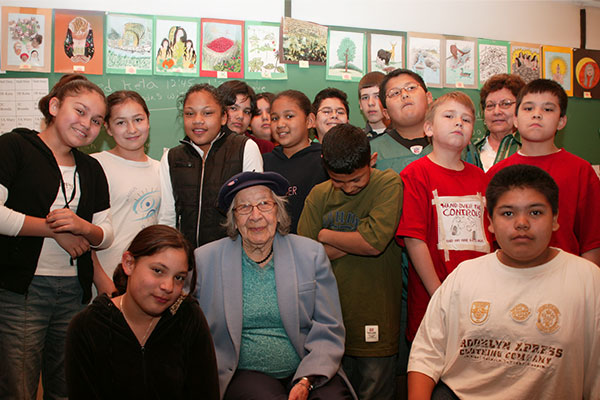
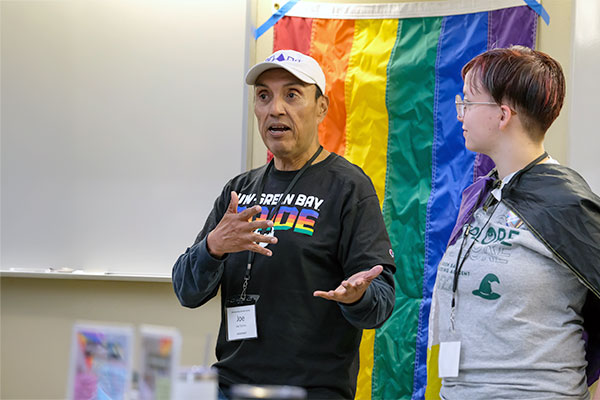
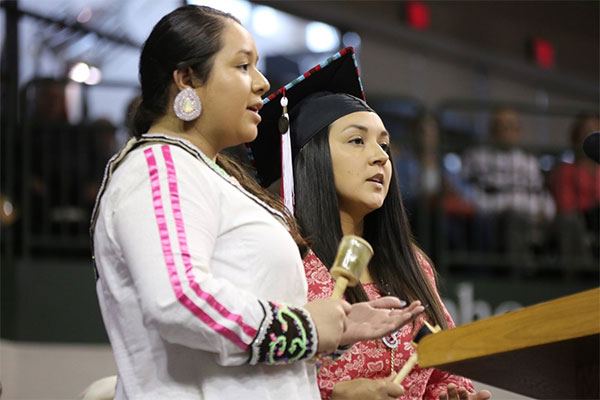
a Language Unlike Any Other
Oneida is a native American language of the Iroquoian family. It is related to the other languages of the League of the Iroquois (Mohawk, Oneida, Onondaga, Cayuga, Seneca and later, Tuscarora) also known as the Five Nations Confederacy or Haudenosaunee. Read Sample Texts
It's All Verbs
There's a small number of parts of speech (verbs, nouns and particles) where most words are structurally verbs even if they function as nouns.
Volume Matters
A process of whispered syllables changes the meaning of a sentence.
Importance Grammar
Word order depends more on important things to say rather than correct grammar.
Teaching
Grammar
The Oneida Dictionary, created in 1996, and the Teaching Grammar, created in 2006, were built on work of people across decades, involving Oneida speakers like Andrew Beechtree, Ida Blackhawk, John Skenandore and Tillie Baird and Floyd Lounsbury. Maria Hinton, Amos Chistjohn and Clifford Abbott championed this work.
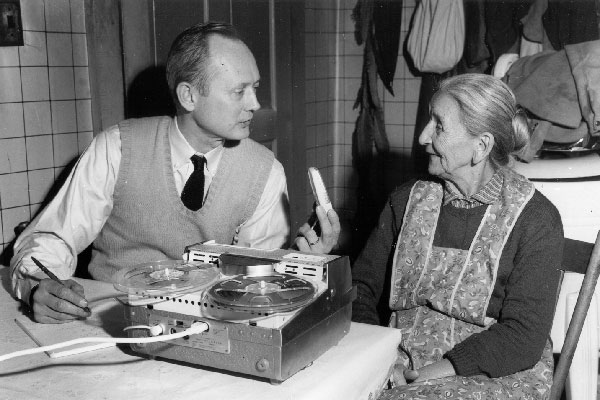
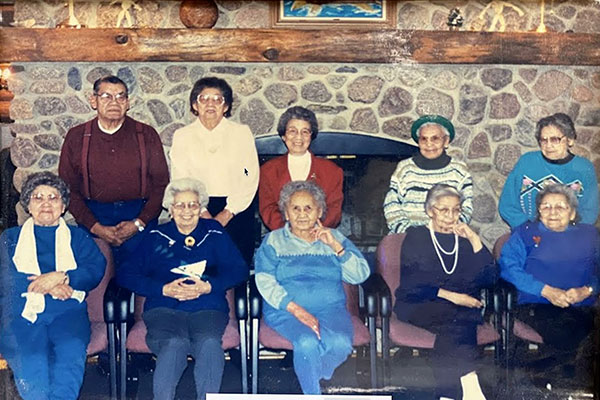
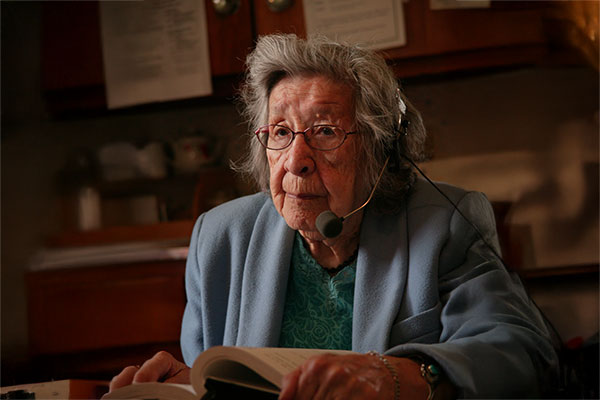
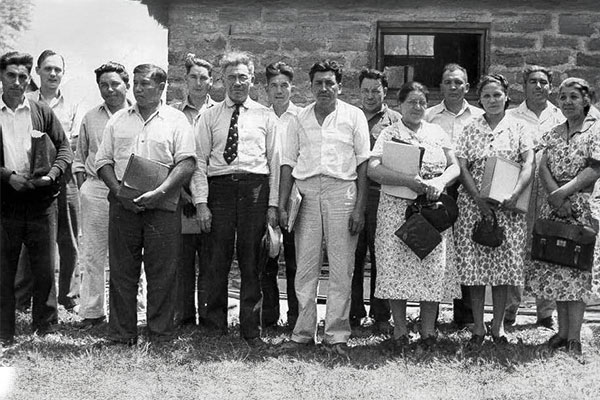
Learn by Chapter
Build on your knowledge a little bit at a time. Download individual pdfs of the Oneida Teaching Grammar (pdf), one chapter at a time.
- Table of Contents (pdf) (43 KB)
- I Introduction (pdf) (2.4 MB)
- II The Basic Verb (pdf) (1 MB)
- III The Basic Noun (pdf) (3.5 MB)
- IV Pattern Expectations (pdf) (612 KB)
- V Verb Forms (pdf) (1.8 MB)
- VI More Affixes (pdf) (2.4 MB)
- VII Pronominal Prefixes (pdf) (1.7 MB)
- VIII Complex Sentences (pdf) (633 KB)
- IX Still More Affixes (pdf) (2.3 MB)
- X Texts (pdf) (1.4 MB)
- XI Summaries (pdf) (1.8 MB)
Why is Language Important?
Translations don't always capture the true meaning of something. Every word relies on the context of the words around it. In your Oneida language classes, you won't just learn what a word means; you'll also get insight into the culture of Oneida people. According to Maria Hinton, who helped champion this project, the Oneida language is like poetry. For example, there's a deeper thought to the color red; it's not just the color, but the quality of blood. What does this poetry say about Oneida's relationship with the world? In your classes, your professors will challenge you to see a whole new world through the Oneida language.
First Nations Across Campus
UW-Green Bay is committed to recognizing the historical and current contributions of First Nations in our region.
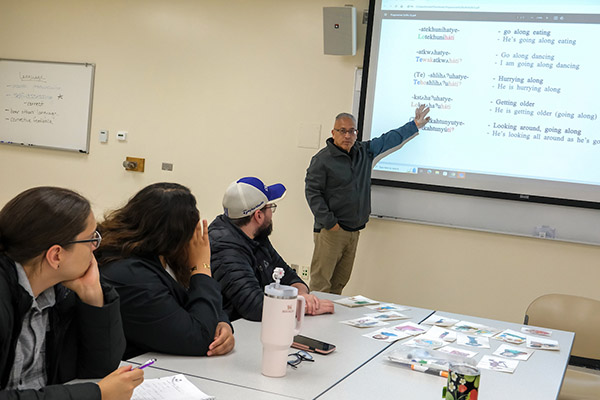
Bachelor's Degree
Learn more about First Nations cultures with a focus on Indigenous teaching. Here, the classroom is a learning community rather than a hierarchy.
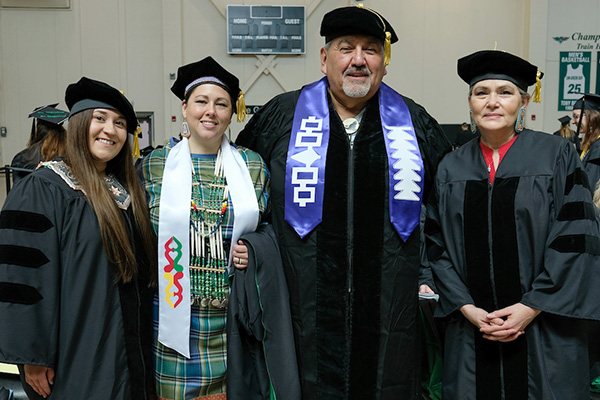
Educational Doctorate
The only degree of its kind in the U.S., the First Nations Ed.D. prepares you to revitalize Indigenous communities, with a focus on learning through oral scholarship.
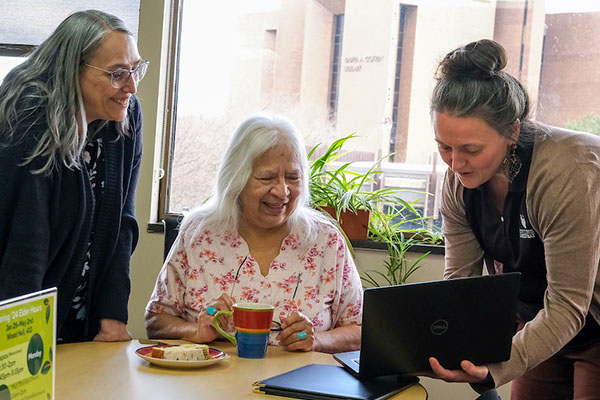
Act 31 Center for First Nations
The center is a response to Wisconsin's Act 31, which requires educators to learn about First Nations. You can access resources, build community and learn directly from Indigenous Elders.
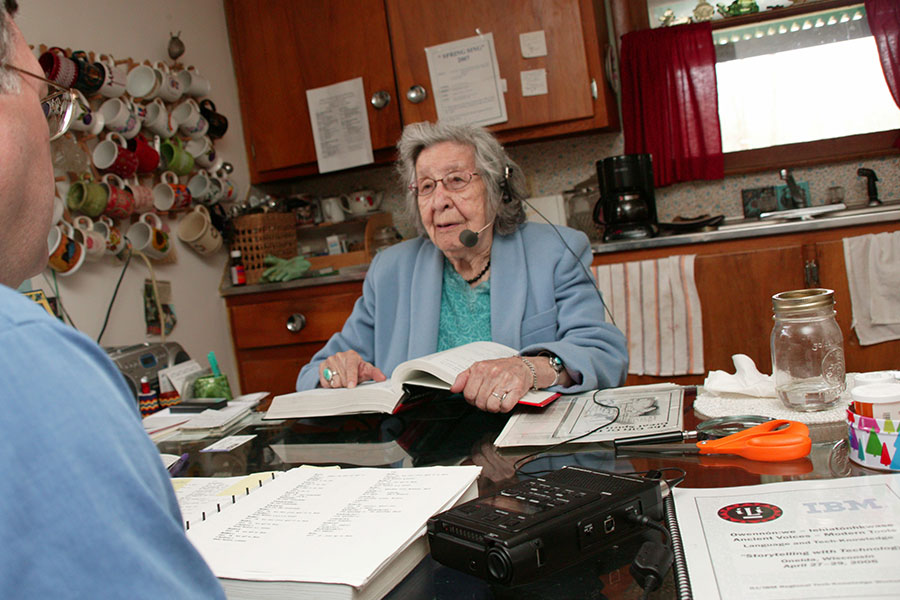
More Than Words
Our work is preserving the disappearing Oneida language.
There are no first language Oneida speakers left. As second language learners, that makes the dictionary created by Maria Hinton and Clifford Abbott that much more important. You won't just see the translations; you can hear what they are, as read by Maria. Look no further for the true value of their project than the YouTube video comment by @memphistomboy: "tears of joy to hear these words...her voice brings me back to my father who spoke this language to me."
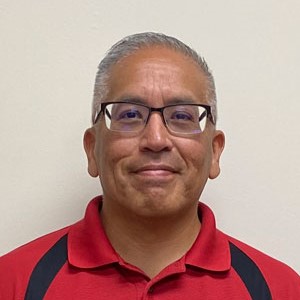
Reach Out
Meet Forrest Brooks, our resident advocate to uplift the Oneida language. As a lifelong learner of Haudenosaunee original ways of thinking, being and doing, he's passionate about sharing Indigenous culture.